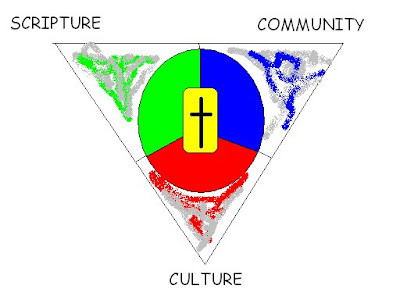There’s a discussion going on over at Stephen Law’s about the uniqueness of Christ’s sacrifice – Stephen is arguing, I think plausibly, that other people’s sacrifices can be at least comparable to that which Jesus makes. In the comments, however, I’ve raised a different issue, which probably deserves its own home. I’m sceptical of the idea that Jesus knew – in a strong sense of that word – that he would be resurrected. Reasons under the fold.
Like a good conservative evangelical Stephen quotes several proof texts to show that Jesus did in fact know he would be resurrected, including: Mark 14.25, Luke 23:42, Matt 20:19 – and there are a number of others, some even more explicit.
If the discussion is simply about what ‘the plain sense of Scripture’ testifies to, then that’s the end of the discussion, and the fundamentalist and the atheist can continue to make common cause in how to read the Bible. However, I have three grounds for thinking this insufficient:
a) the impact of modern critical scholarship, especially source and redaction criticism. Are these words accurately transcribed or is there some influence (any influence!) from the post-Easter church? In other words, I have no doubt that Jesus predicted his conflict with the authorities in Jerusalem, and his death, but can we, on historical grounds alone, be certain he predicted the resurrection?
b) The emphasis on the word ‘know’. Even if he did predict his resurrection – or something like it – did he know it in an absolutely certain manner, or is he speaking from faith? In other words, even if we take the words as historically accurate – or that there is a core of something historically accurate here – how are we to read them? What’s the tone of voice?
c) It seems to me that if Jesus did have complete and utter confidence in his resurrection (ie the strong sense of the word ‘know’) it undermines some crucial elements of the story. There is no dramatic tension; the story becomes a puppet show; there is no longer anything of real human interest at stake. This is not a problem for some readings (PSA!!) of the story, because there all that matters is that Jesus gets slaughtered. But it’s a problem for me.
As I understand him, Jesus was following the will of the Father, moment to moment. I think he could foresee (in a non-miraculous sense) that he would be killed, and I think he probably hoped – and trusted – that he would be vindicated in some way. But I can’t see any way to reconcile a strong sense of knowing he would be resurrected with a) Gethsemane, and b) the cry of dereliction from the cross. Both of those make complete human sense to me – and, paradoxically, that’s why they are most revealing of the true nature of divinity – but all of this is lost if Jesus had certain knowledge of the resurrection.
I’d be interested to know what other people think.







